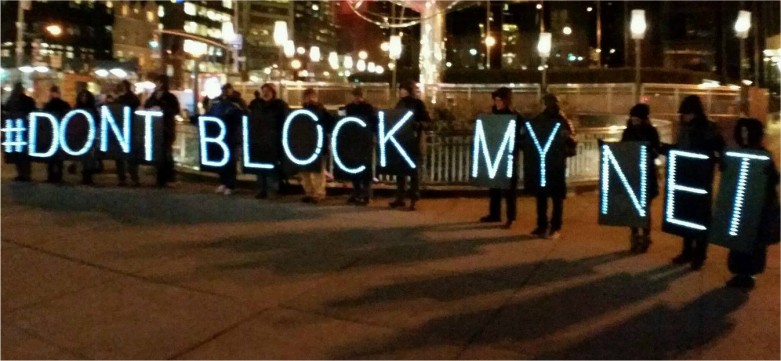
Why I Fight: To Protect Accessible and Open Media for All
I’m a digital native: I grew up with video games, kids’ science sites and personal computers alongside my picture books, PlayMate toys and stuffed animals. Technology and media enriched my childhood, and I wouldn’t change a thing.
As I grew older, I came to believe in Moore’s Law. In 1965, Intel co-founder Gordon Moore predicted that the number of transistors we would be able to fit on an integrated circuit would double every two years, in turn doubling electronics’ processing power. Today Moore’s Law is used to demonstrate that technology will become exponentially more advanced as time goes on.
During my childhood alone, the Internet illustrated this concept and became an integral part of global culture. As the American lifestyle requires us to be both busy and flexible, both personally and professionally, we “netizens” turn to the Internet to connect with our friends and families, entertain ourselves and access information and news. We’re so used to living this way that many of us get frustrated when we meet blocks such as low speed, data caps or poor connectivity.
As I became more fascinated with our culture’s reliance on media and technology I began to wonder: Why was it still so expensive to have a basic level of Internet connectivity and data? Why did my options for Internet access feel narrower every year?
With these questions in mind, I educated myself about our intensifying interactions with media — and learned that users are getting the short end of the stick.
Over the years, as Internet service providers came to understand how dependent we all are on the Internet, they slowed our connection speeds (something the new Net Neutrality rules address) while keeping rates high. Some attempted to block encryption services, putting users with sensitive content at risk. And, in the recent fight over Net Neutrality, ISPs like AT&T, Comcast and Verizon pushed for a tiered Internet in which companies would have to pay steep fees for speedier access.
To me, these are crimes against cultural growth. The ISPs shouldn’t treat our connectivity like a toy.
I believe that these corporations have no right to restrict our access to culture and information. By doing so, they leave entire groups of Americans behind in the economic, professional, academic, political and cultural spheres. The ISPs’ shortsighted practices are particularly harmful for people of color, low-income residents and other marginalized groups.
Future generations shouldn’t have to fight these battles. Our children, grandchildren and everyone beyond deserve access to today’s resources — and the even better ones on the horizon. I know that sounds like a lot to live up to, but I truly believe in Moore’s Law. The fast-paced, connected future that society imagined is coming quicker than any of us envisioned — and it shouldn’t involve any gatekeepers.
Victoria Lucarelli is a summer intern at Free Press. She's studying for a sociology degree at Mount Holyoke College.
Original photo by Flickr user Backbone Campaign